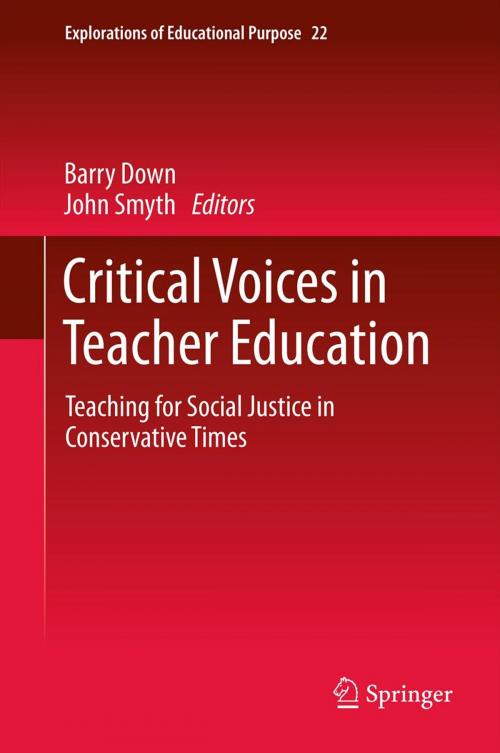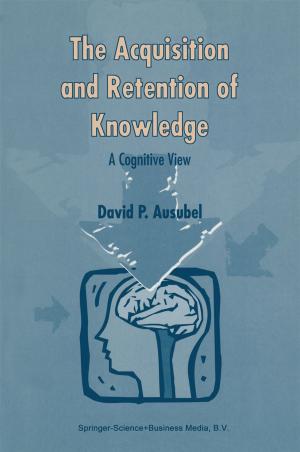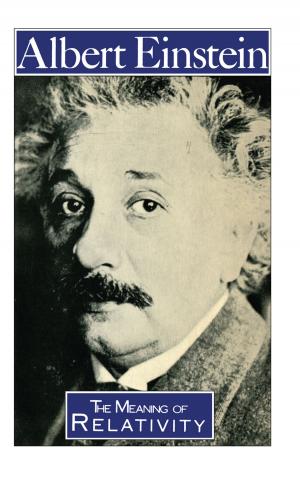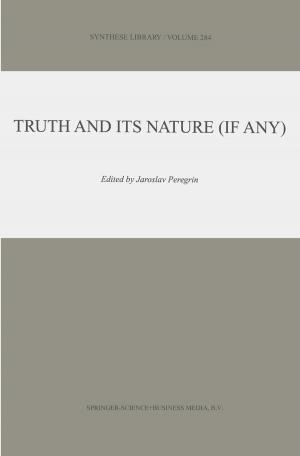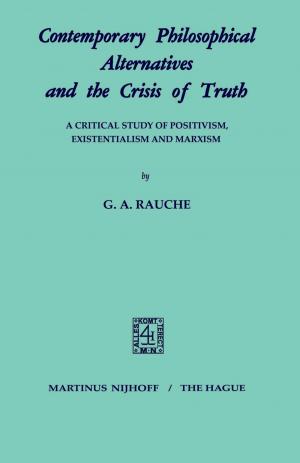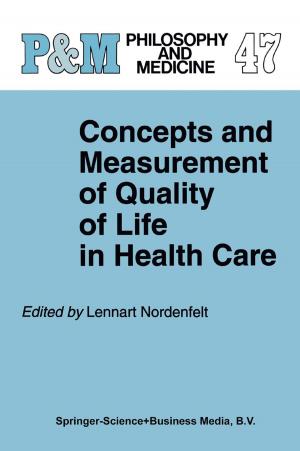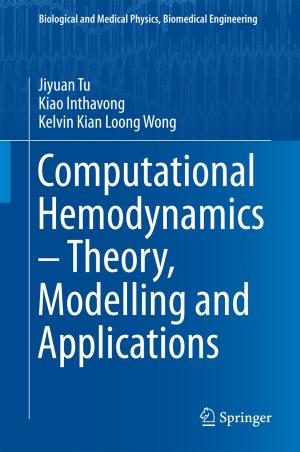Critical Voices in Teacher Education
Teaching for Social Justice in Conservative Times
Nonfiction, Reference & Language, Education & Teaching, Educational Theory, Philosophy & Social Aspects| Author: | ISBN: | 9789400739741 | |
| Publisher: | Springer Netherlands | Publication: | April 28, 2012 |
| Imprint: | Springer | Language: | English |
| Author: | |
| ISBN: | 9789400739741 |
| Publisher: | Springer Netherlands |
| Publication: | April 28, 2012 |
| Imprint: | Springer |
| Language: | English |
We live in dangerous times when educational policies and practices are debated largely in terms of how they fit with the needs of the free market. This volume is a collection of writing by teacher-educators that draws on their unique biographies, experiences and perspectives to denounce these misguided norms. It explores what it means—practically and intellectually—to teach for social justice in conservative times. In a globalised world where the power of capital holds sway, the purposes of social institutions such as universities and schools is being refashioned in ways that are markedly instrumental and technicist in nature. The consequence is that teachers’ work is increasingly constrained by regimes of control such as standardised testing, accountability, transparency, and national curricula. In the meantime, large numbers of students and teachers are disengaging physically, emotionally and intellectually from learning.
The contributors to this edited volume present both a powerful critique of these developments and a counter-hegemonic vision of teacher education founded on the principles and values of social justice, democracy and critical inquiry. Teacher education, they argue, involves a commitment to critical intellectual work that subjects some deeply entrenched assumptions, beliefs, habits, routines and practices to closer scrutiny. The contributing authors expose how ideology and power operate in seemingly blameless, rational ways to perpetuate social hierarchies based on class, gender, sexuality, race and culture.
We live in dangerous times when educational policies and practices are debated largely in terms of how they fit with the needs of the free market. This volume is a collection of writing by teacher-educators that draws on their unique biographies, experiences and perspectives to denounce these misguided norms. It explores what it means—practically and intellectually—to teach for social justice in conservative times. In a globalised world where the power of capital holds sway, the purposes of social institutions such as universities and schools is being refashioned in ways that are markedly instrumental and technicist in nature. The consequence is that teachers’ work is increasingly constrained by regimes of control such as standardised testing, accountability, transparency, and national curricula. In the meantime, large numbers of students and teachers are disengaging physically, emotionally and intellectually from learning.
The contributors to this edited volume present both a powerful critique of these developments and a counter-hegemonic vision of teacher education founded on the principles and values of social justice, democracy and critical inquiry. Teacher education, they argue, involves a commitment to critical intellectual work that subjects some deeply entrenched assumptions, beliefs, habits, routines and practices to closer scrutiny. The contributing authors expose how ideology and power operate in seemingly blameless, rational ways to perpetuate social hierarchies based on class, gender, sexuality, race and culture.
